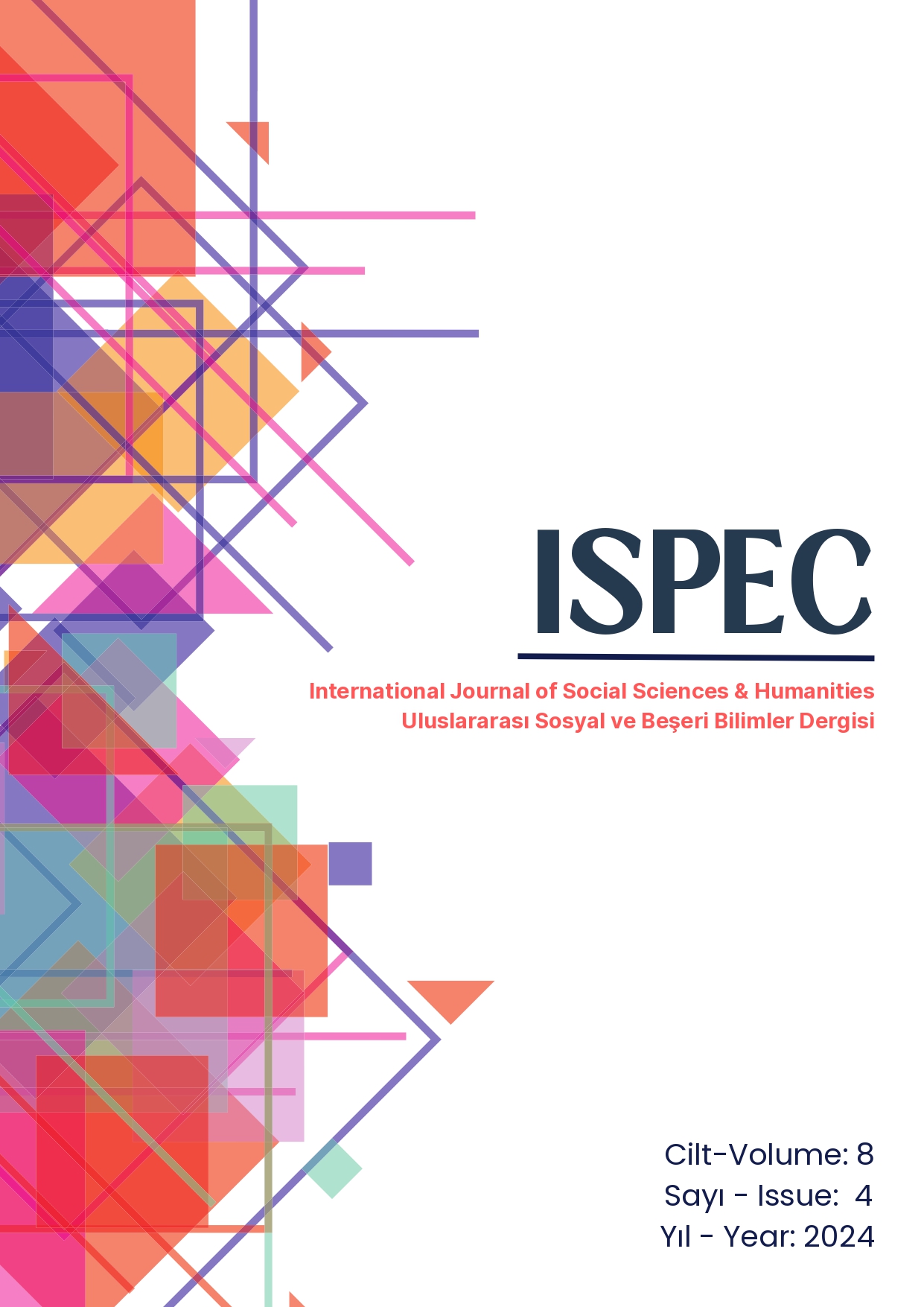From Civil Service to Professionalization: the Evolution of Historiography in the Ottoman State
DOI:
https://doi.org/10.5281/zenodo.14507469Keywords:
Ottoman Empire, historiography, vakanüvis, Darülfünun, eğitimAbstract
Historiography in the Ottoman Empire has had a state-centered structure since the classical period. The chroniclers, who came from the administrative bureaucracy, examined various periods of history by establishing causal links between events. From the 16th century onwards, the first texts that began to emerge consisted of the presentation of important events in the recent and distant past of Devlet-i Aliye in chronological order with descriptive narratives. This tradition, which began with Yahşi Fakih, took on a relatively more professional form only after the position of vakanüvis became equivalent to that of a civil servant. In the 19th century, the influence of the developments in the field of historiography in the world and the fact that nation-building processes became associated with historiography prepared the conditions that opened the door to scientific historiography in the Ottoman Empire. In this article, the transformation of “statist” historiography into a discipline studied in higher education institutions will be evaluated from various perspectives.
References
Arıkan, Z. (1985). Tanzimat'tan Cumhuriyet'e Tarihçilik. F. Aral, & M. Belge (Dü) içinde, Tanzimat'tan Cumhuriyet'e Türkiye Ansiklopedisi C. VI (s. 1584-1594). İstanbul: İletişim Yayınevi.
Babaoğlu, R. (2020). Mekteb-i Mülkiye (1859-1960) Tanzimat'tan Cumhuriyet'e Bilimsel ve Kültürel Modernleşmenin Kurumsallaşması. Ankara: Türk Tarih Kurumu.
Babaoğlu, R. (2021). Türkiye'nin Modernleşme Sürecinde Yükseköğretim ve Üniversite Gündemi. M. Kaya içinde, Tanzimat'tan Günümüze Anahatlarıyla Türk Eğitim Sistemi (s. 245-301). Ankara: Akademisyen Kitabevi.
Babinger, F. (1992). Osmanlı Tarih Yazarları ve Eserleri. (C. Üçok, Çev.) Ankara: Kültür Bakanlığı Yayınları.
Becker, C. (1938). What is Historiography? The American Historical Review, 44(1), 20-28.
Birinci, A. (2008). Mekteb-i Mülkiye'de Siyasi Tarih: ALi Kemal'den Ali Reşat Bey'e. Prof. Dr. Fahir Armaoğlu'na Armağan (s. 1-64). içinde Ankara: Türk Tarih Kurumu.
BOA. MF.MKT. 75/71, 13 Cemaziyülevvel 1299/2 Nisan 1882. (tarih yok).
BOA. MF.MKT., 631/53, 28 Safer 1320/6 Haziran 1902. (tarih yok).
Cheng, E. K.-M. (2008, May). Exceptional History? The Origins of Historiography in the United States. History and Theory, 47(2), 200-228.
Doğan, N. (1998). Ders Kitapları ve Sosyalleşme (1876-1918). İstanbul: Bağlam Yayıncılık.
Ergut, F. (2015). Institutionalization of History in the Ottoman Empire. Turkish Studies, 16(2), 219-239.
Ersoy, A. (2018). The Sultan and His Tribe: Documenting Ottoman Roots in the Abdulhamid II Photographic Albums. Ottoman Arcadia: The Hamidian Expedition to the Land of Tribal Roots (1886) (s. 31-63). içinde İstanbul: Koç University Research Center for Anatolian Civilizations (ANAMED).
İhsanoğlu, E. (1990). Darulfünun Tarihçesine Giriş: İlk İki Teşebbüs. Belleten, 54(210), 699-738.
İnalcık, H. (1962). The Rise of ottoman Historiography. B. Lewis, & P. Holt (Dü) içinde, Historians of the Middle East (s. 152-168). NEw York, Toronto: Oxford University Press.
Kafadar, C., & Karateke, H. (2011). Late Ottoman and Early Republican Turkish Historical Writing. Stuart Macintyre, J. Maiguashca,, & A. Pók (Dü) içinde, The Oxford History of Historical Writing Volume 4: 1800-1945 (s. 559-578). Oxford: Oxford University Press.
Oral, M. (2014). Türkiye'de Romantik Tarihçilik. İstanbul: Yeni İnsan Yayınevi.
Ortaylı, İ. (1996). Osmanlı Tarihyazıcılığının Evrimi Üstüne Düşünceler. S. Atauz (Dü.) içinde, Türkiye'de Sosyal Bilim Araştırmalarının Gelişimi (s. 419-429). Ankara: Türkiye Sosyal Bilimler Derneği.
Severcan, Ş. (1990). Ahmet Cevdet Paşa'nın Tarihçiliği. Erciyes Üniversitesi İlahiyat Fakültesi Dergisi(7), 227-233.
Sönmez, E. (2022). Clio Between Revolution and Collapse: The Making of the Historical Dicipline in the Late Ottoman Empire. Modern Intellectual History, 1-22.
Sönmez, E. (2022). Historical Writing int he Nineteenth-Century Ottoman Empire: Expansion, Islamization, and Nationalization (1839-1908). Turkish Historical Review, 13, 42-66.
Şimşek, A. (2017). Giriş. Türkiye'de Akademik Tarihçilik (s. 7-25). içinde İstanbul: Kronik Yayınları.
Tahir, B. M. (1314). Türklerin Ulûm ve Fünûna Hizmetleri . İstanbul: İkdam Matbaası.
Timur, T. (2000). Toplumsal Değişme ve Üniversiteler. Ankara: İmge Yayınevi.
Toksöz, M. (2014, Nisan). Geç Dönem Osmanlı Tarihçiliği ÜZerine Düşünmek. Toplumsal Tarih(244), 52-54.
Toprak, Z. (1986). Türkiye'de Çağdaş Tarihçilik. Türkiye'de Sosyal Bilim Araştırmalarının Gelişimi (s. 431-438). içinde Ankara: Türkiye Sosyal Bilimler Derneği.
Toprak, Z. (2011, Aralık). Darwinizmden Ateizme Türkiye'de Tarih Eğitiminin Evrimi. Toplumsal Tarih(216), 2-14.
Toprak, Z. (2012). Erken Cumhuriyet Döneminde Türkiye'de Tarihçilik. Bugünün Bilgileriyle Kemal’in Türkiye’si - La Turquie Kamâliste (s. 176-181). içinde İstanbul: 178.
Toprak, Z. (2012). Türkiye’de Çağdaş Tarihçilik ve Eric Hobsbawm Faktörü. Toplumsal Tarih, 36-49.
Toprak, Z. (2017). Türkiye'de Akaemik Tarihçiliğin Genel Durumu: Bir Bilanço Denemesi. A. Şimşek, & A. Aköz (Dü) içinde, Türkiye'de Akademik Tarihçilik (s. 25-38). İstanbul: Kronik Kitap.
Türk, İ. C. (2013). Osmanlı Devleti'nde Tarih Eğitimi (1839-1922). İstanbul: Arı Sanat Yayınları.
Türk, İ. C. (2013). Osmanlı Devleti'nde Tarih Eğtiimi (1839-1922). İstanbul: Arı Sanat Yayınları.
Üstel, F. (2014). "Makbul Vatandaşın Peşinde" II. Meşrutiyet'ten Bugüne Vatandaşlık Eğitimi. İstanbul: İletişim Yayınları.
Vann, R. T. (2023, 11 31). Historiography. Encyclopedia Britannica.
Yıldız, E. (2015). Osmanlı Devleti’nde Bir Dünya Tarihi Deneyimi: Mizancı Mehmed Murad ve Tarih-i Umumisi. Turkish History Education Journal, 4(2), 113-135.
Yinanç, M. H. (1940). Tanzimat'tan Meşrutiyet'e Kadar Bizde Tarihçilik. Tanzimat I Yüzüncü Yıldönümü Minasebetiyle (s. 573-595). içinde İstanbul: Milli Eğitim Bakanlığı.
Downloads
Published
How to Cite
Issue
Section
License
Copyright (c) 2024 ISPEC International Journal of Social Sciences & Humanities

This work is licensed under a Creative Commons Attribution-NonCommercial-NoDerivatives 4.0 International License.






